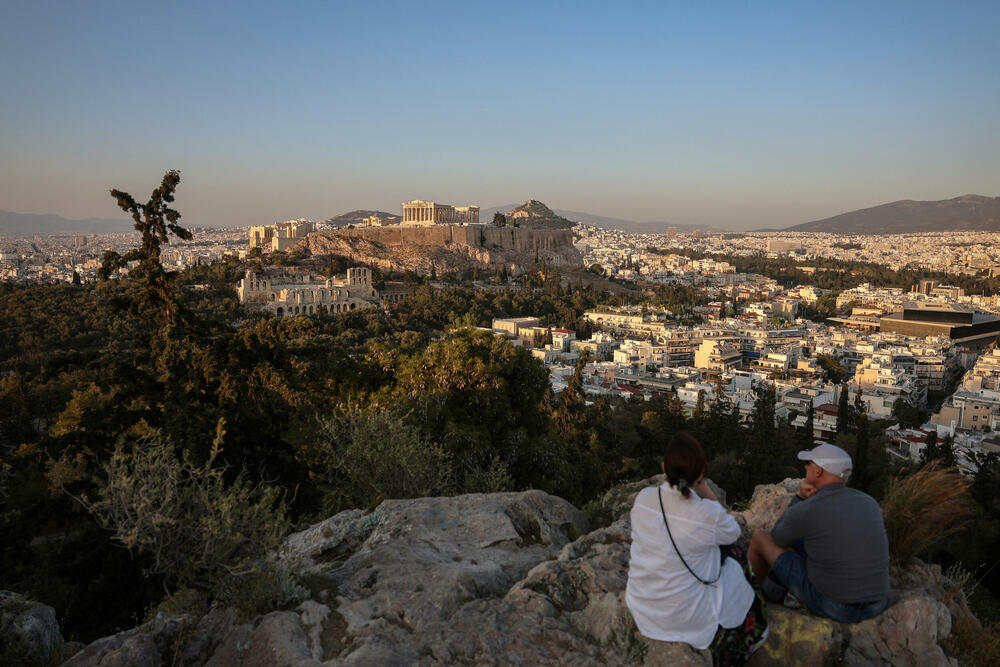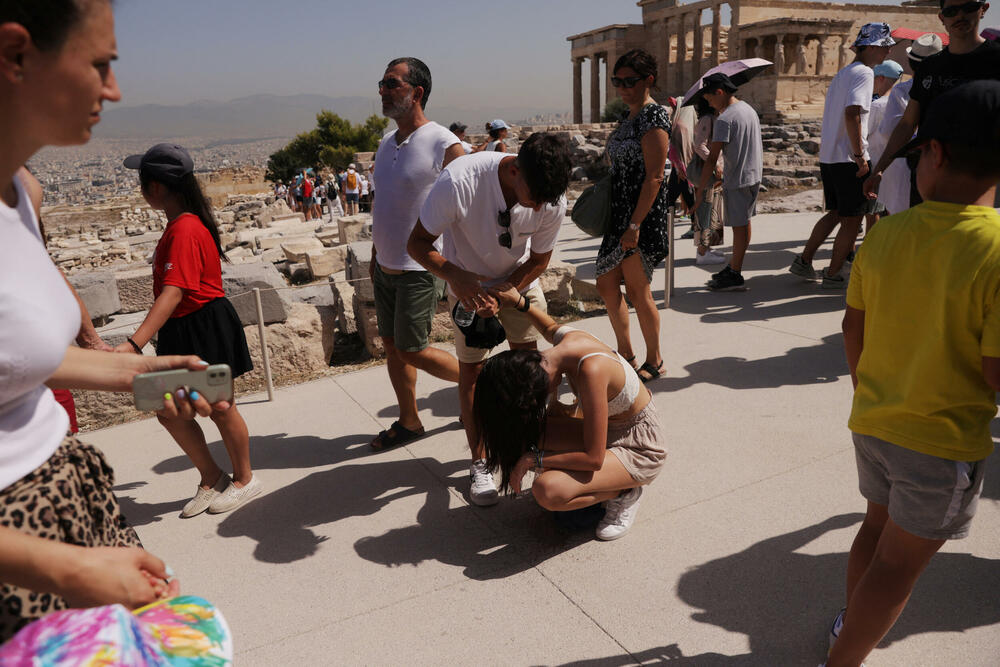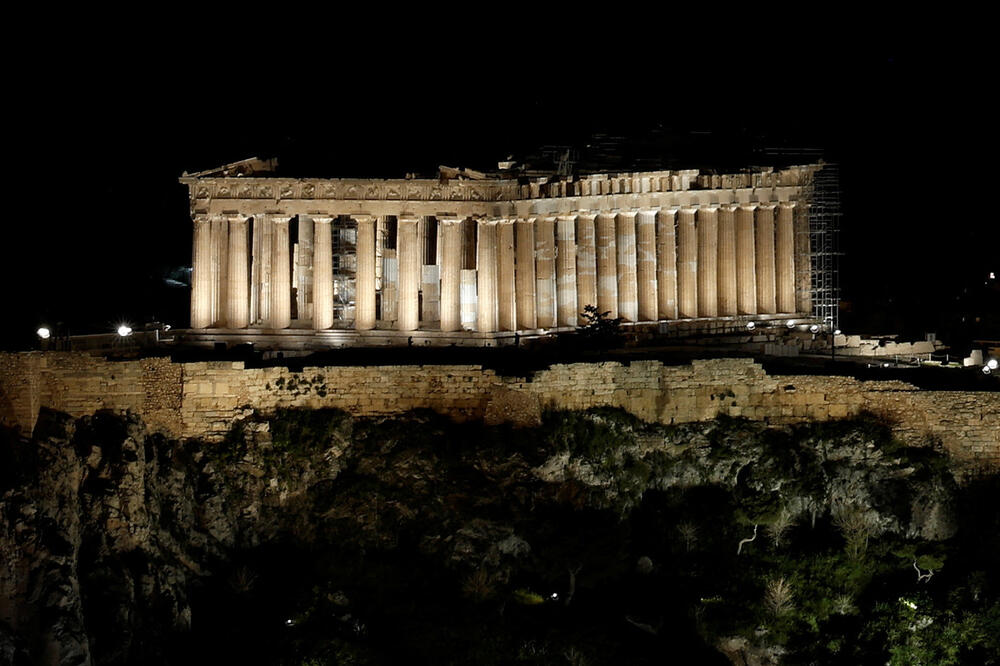Jackie and Malcolm Love stood among the throngs of tourists in the heart of Athens, surveying the Acropolis with a combination of awe and admiration. They said that the greatest classical landmark of the Greek capital was truly magnificent, but that the crowds were such, even in April, that they still decided to experience it from a distance.
"We didn't go in, not with such a crowd," Jackie said, surveying the fifth-century structure from the cobbled boulevard below. "We thought it wasn't the best idea, right?", she said, looking at her husband.
The couple, from Ipswich, England, were considering whether to do a private tour instead. The Greek Ministry of Culture plans personalized private visits to the old complex - at a cost of 5.000 euros. "We wouldn't pay for it," said Malcolm, a truck driver. "Crazy prices," added Jackie. "It's certainly not for people like us."
The Acropolis is by far Greece's biggest attraction, and last year it was visited by 22 people a day, as a result of which the authorities introduced strict controls, including a system of time limits.

This year, officials have gone a step further, announcing a program that allows visitors to avoid the crowds and experience Pericles' masterpiece in an exclusive way. This initiative envisages up to four groups of five people accompanied by expert archaeologists between seven and nine in the morning and eight and ten in the evening - before opening and after closing - to avoid thousands of visitors taking selfies. "Tour operators have been looking for something like this for a long time," said Nikoleta Valakou, president of the Hellenic Organization for the Development of Cultural Resources, a state body affiliated with the Ministry of Culture.
According to her, the Ministry is ready to allow private individual tours, provided they are ready to pay the price of the whole group. "There will also be souvenirs," added Valakou. "A replica of a coin, maybe a copy of a small statue... something as a memory of that unique experience".
However, the move - which is part of a reform of the admissions policy for more than 350 archaeological sites and museums managed by the Greek Ministry of Culture - has sparked anger and resentment, including from archaeologists. Guides describe it as impractical, and critics claim that it goes against the spirit of everything the world symbol of democracy is supposed to represent. "The next thing that will happen is that champagne will be drunk there and engagements will be arranged," said Despina Koutsoumba, vice president of the association of Greek archaeologists. "They will think that when they have spent so much money then they can do whatever they want".
The very idea, according to her, is "unacceptably exclusive". Ultimately, the monument was a symbol of democratic Athens where citizens were equal before the law.
"This says that Greece is ready to allow people who have money to enjoy the Acropolis in a very exclusive way, while leaving out those who are simply not so wealthy. We strongly oppose that," said Koutsoumba.
Previously, only world leaders, nobility and certain celebrities had access to the building outside of business hours.
The public, with the exception of academics and monument protectors, has one day - when the full moon is in August - to enjoy the temples at night.
As resistance grows, critics question the wisdom of the decision at a time when the gap between rich and poor has become even more pronounced. "It's simply elitist," said Kostas Zambas, who managed the restoration work on the Acropolis for more than 25 years.
"The very idea is contrary to the spirit of the place that we associate with democracy. It's just not right”.
Since Athens is on the front line of the climate crisis, tour guides are criticizing the idea and questioning the feasibility of a plan that would mean opening the site at 9 instead of 8. Last summer, the Greek capital - continental Europe's southernmost metropolis - experienced record temperatures of up to 45 degrees Celsius, forcing officials to take the unprecedented step of closing the Acropolis for several days.

"If they move the opening to nine o'clock because of these private tours, then it will be a disaster," said Kriton Poperas, who until recently headed the Association of Tourist Guides, which has 4000 members.
"For several years now, our association has been advocating that the Acropolis opens earlier precisely because of the change in weather conditions. Don't forget that it is much hotter up there because there is no shade”.
He said that the Greek government, which is oriented towards business, increasingly looks at culture exclusively through commercial glasses. "They see the Acropolis and everything related to tourism as a product," he said. “This idea of exclusive tours is like putting a price on a location: it reminds me of an auction where the highest bidder wins and is told 'now it's all yours'. It is wrong and inevitably leads to trouble”.
Cruise ship ticket holders, who are the source of the largest number of day visitors to the Greek capital, often book months in advance and have very tight schedules. Many of them have been waiting in line for the Acropolis since eight o'clock in the morning.
In her office overlooking the central avenue of Athens, Valaku said the Ministry of Culture has taken the criticism on board. It is estimated that the tours could bring in up to 40.000 euros per day, and the income would go to the projects of cultural institutions that are in financial difficulties.
"The income would be invested," she said. "Since the Acropolis would be the first for such tours, it would be a pilot project and is subject to change."
The idea was not only poorly received. The greatest enthusiasm was among the members of the Greek diaspora, where the better-off already announced that they were applying.
"Dozens of my friends have told me that they are interested in these tours," said Peter Poulos, executive director of the Hellenic Initiative, a global philanthropic organization of the Greek diaspora.
"Why not take people's money if it will help protect and preserve cultural monuments for generations to come? We all support the highest ideals, but at the end of the day ideals will not pay the high price required to manage a site of this scale”.
Prepared by: NB
Bonus video:




